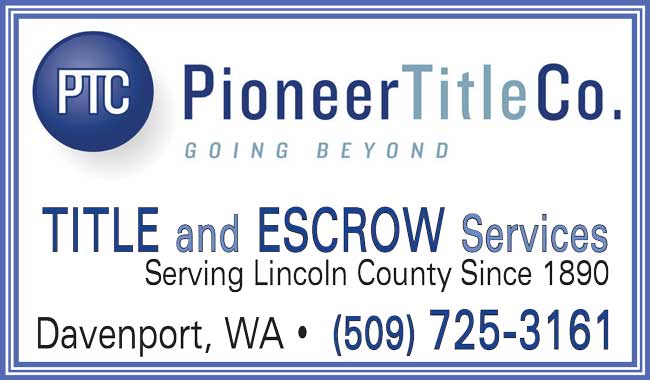 Business ownership. Entrepreneurship. Economic Development. Intergenerational accumulation of wealth. Public libraries. The relationships between these may be apparent for some items on the list, less so for others. As the Business Research Librarian for the Spokane Public library, my job is to help draw those connections for you. But before we get to that, a quick discussion about how wealth can be built in our communities.
Business ownership. Entrepreneurship. Economic Development. Intergenerational accumulation of wealth. Public libraries. The relationships between these may be apparent for some items on the list, less so for others. As the Business Research Librarian for the Spokane Public library, my job is to help draw those connections for you. But before we get to that, a quick discussion about how wealth can be built in our communities.
Historically, home ownership has been a relatively predictable path to growing wealth over time. Home ownership has the added benefit of being a form of wealth that can often be handed down to an upcoming generation. As housing prices have skyrocketed over the past three years, that avenue has increasingly moved beyond the reach of many in our communities.
While access to higher education has often been spotty and unequal at best, a college degree was, typically, a fairly predictable path toward building wealth over time. With college costs spiraling upward, the ability to emerge with a degree while avoiding crippling debt is a rarity.
That leaves entrepreneurship as another one of the legs on the stool of building intergenerational, community wealth.
If you’re thinking, “Well, what about a job?”, I’m certainly not downplaying a solid working career as a noble path. America was built by the working class. The arc of being a teacher, or a plumber, or a mental health worker or – ahem – a librarian, is more than a respectable approach to earning a living. The hitch is that once a worker stops working (and, with any luck, draws a living wage-level retirement and pension) that money doesn’t continue flowing to the next generation. The youngsters must start from scratch.
So…business ownership. Let’s chat about that. A challenge to owning a business – setting aside any financial risks for the moment – is that there are several hats a business owner must wear (management, HR, accounting, marketing, legal, IT, sales, compliance, logistics, etc.) and it can be hard to not only do all of those things well, but to even know what topic needs what amount of attention at what time. Altogether, it can be a hard slog, with multiple opportunities to mess things up along the way. But if done well, it’s a way to build something that can increase in value over time and be handed off to an upcoming generation.
The reassuring thing about business ownership is that, with the right guidance and access to expertise, business owners can find ways to minimize their risk, get training on the skills they need, and then be able to outsource those tasks that feel like a crushing burden or that are cost effective to do so.
So, what is one way to reduce that scope of risks for business owners and startups? Enter public libraries.
Public libraries, often overlooked in discussions of entrepreneurship, have a unique role to play in fostering business development. Libraries can be ideally positioned to provide support, resources, and a sense of community to budding entrepreneurs. Here are some reasons why public libraries are uniquely suited to promote entrepreneurship:
Accessibility and Inclusivity:
Public libraries are open to all members of the community, regardless of their economic or social status. This inclusivity ensures that business resources are readily available to a broad spectrum of the population, leveling the playing field for aspiring entrepreneurs.
Information and Education:
Libraries are, well, libraries. In technical terms, we have a bunch of stuff. And we share it. Aspiring entrepreneurs can find an entire toolbox of business materials to help them build their business skills and knowledge. The Spokane Public Library is spending upwards of $80,000 per year on our business research tools. That buys some really expensive tools that would normally fall outside the grasp of nearly every single startup in eastern Washington.
Workspaces and Meeting Rooms:
Many public libraries now offer co-working spaces and meeting rooms, enabling entrepreneurs to work on their projects, meet with collaborators and clients, or host workshops and events.
Technology Access:
Entrepreneurs – especially rural entrepreneurs – often face challenges related to limited technology resources. Public libraries bridge this gap by providing access to computers, high-speed internet, and software tools required for business development.
Community and Networking:
Public libraries can serve as hubs for networking and collaboration. Entrepreneurial events, workshops, and seminars can be hosted in library spaces, bringing local entrepreneurs together and fostering a sense of community.
Mentorship and Support:
Many libraries partner with local business support organizations and mentorship programs to provide guidance to aspiring entrepreneurs. These collaborations offer valuable resources for entrepreneurs looking to navigate the complexities of starting a business.
What does it look like if you take all the points above and put it into action? We have a prime example, right here in Spokane in the StartUp Spokane program (www.startupspokane.com).
Originally launched by Greater Spokane Incorporated in 2012, StartUp Spokane was designed to be the front door for all entrepreneurial activity in the region. Having one place to get connected to tools, resources, connections, mentorship and community was the overarching goal of the effort. And the program achieved those goals admirably…until COVID hit. The program went into a bit of a hibernation status until just last month, as the Spokane Public Library, teaming up with the Spokane County Library District, relaunched the StartUp Spokane program.
In subsequent columns in this space, I’ll devote a good amount of ink towards describing the set of tools made available to our entire region’s businesses through StartUp Spokane. But for now, I’ll leave you with this teaser: as the winner 2021 BRASS Business Librarian of the Year Award (with my immediately chronologically adjacent winners being the University of Oxford, University of New Hampshire, University of North Carolina, Greensboro, and Stanford University) let’s just say that we have some really good stuff to offer. I’m excited to share it with you here on these pages.
Mark Pond, MILS, has been the Business Research Librarian with the Spokane Public Library since 2006, and, before that, worked in similar capacities for the Seattle Public Library and the University of Washington Libraries since 1998. Mark has led the effort to develop Spokane Public Library into a nationally recognized leader in the field of business research.




